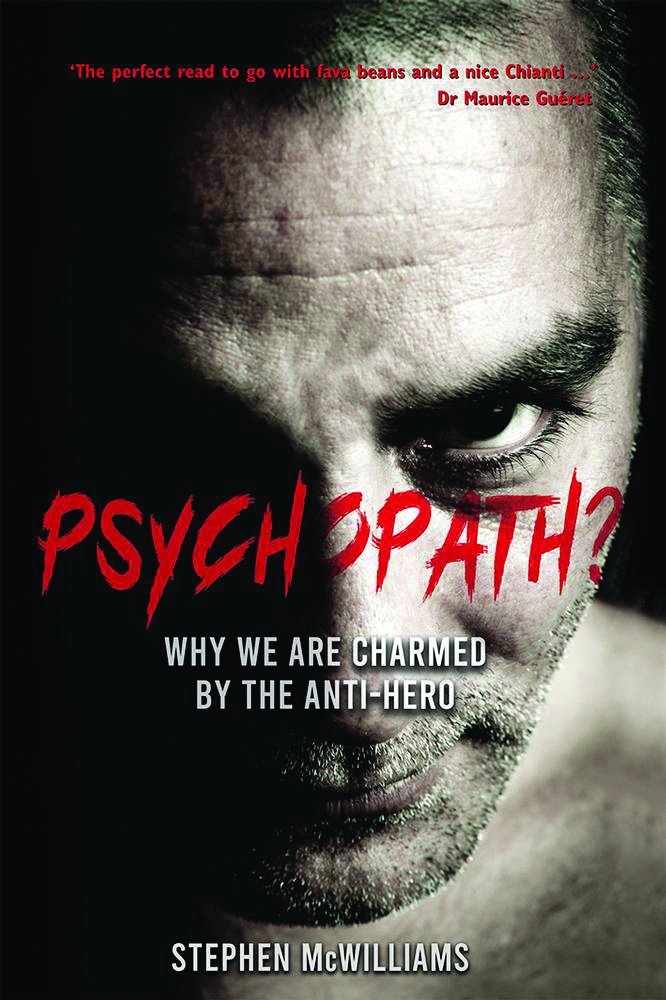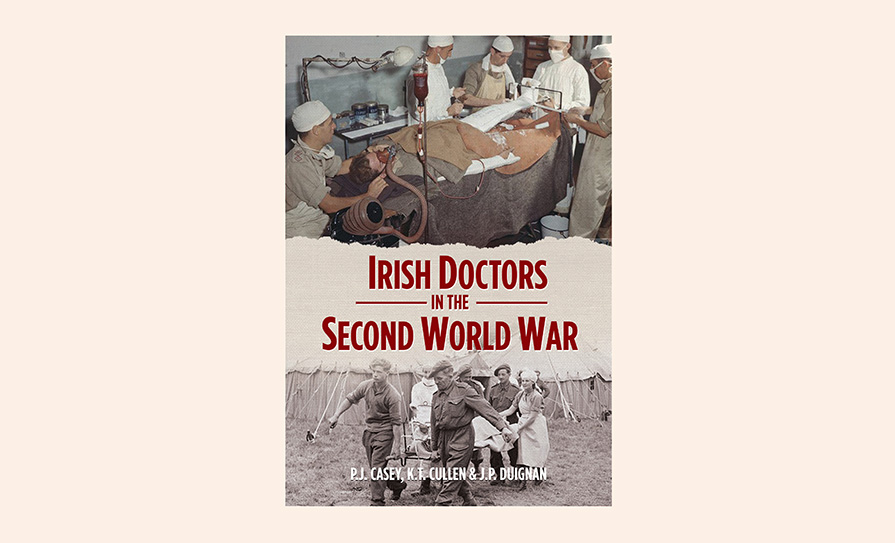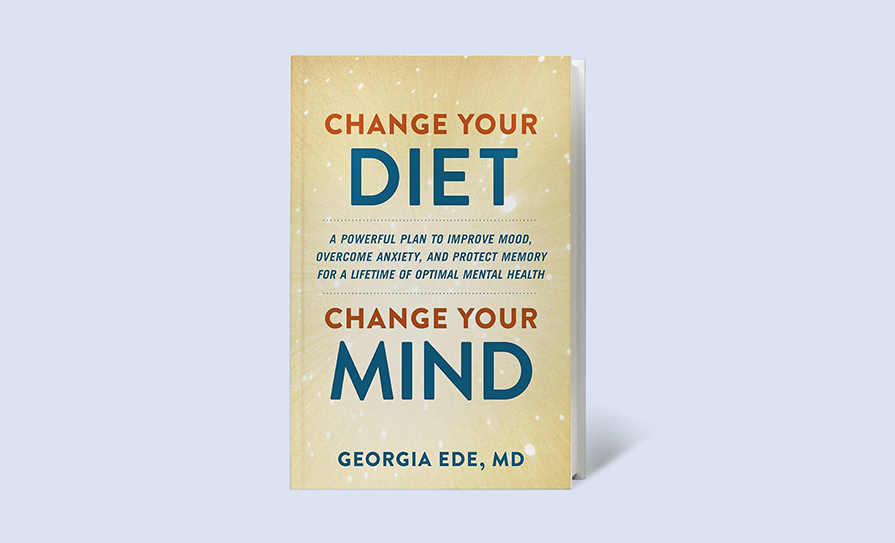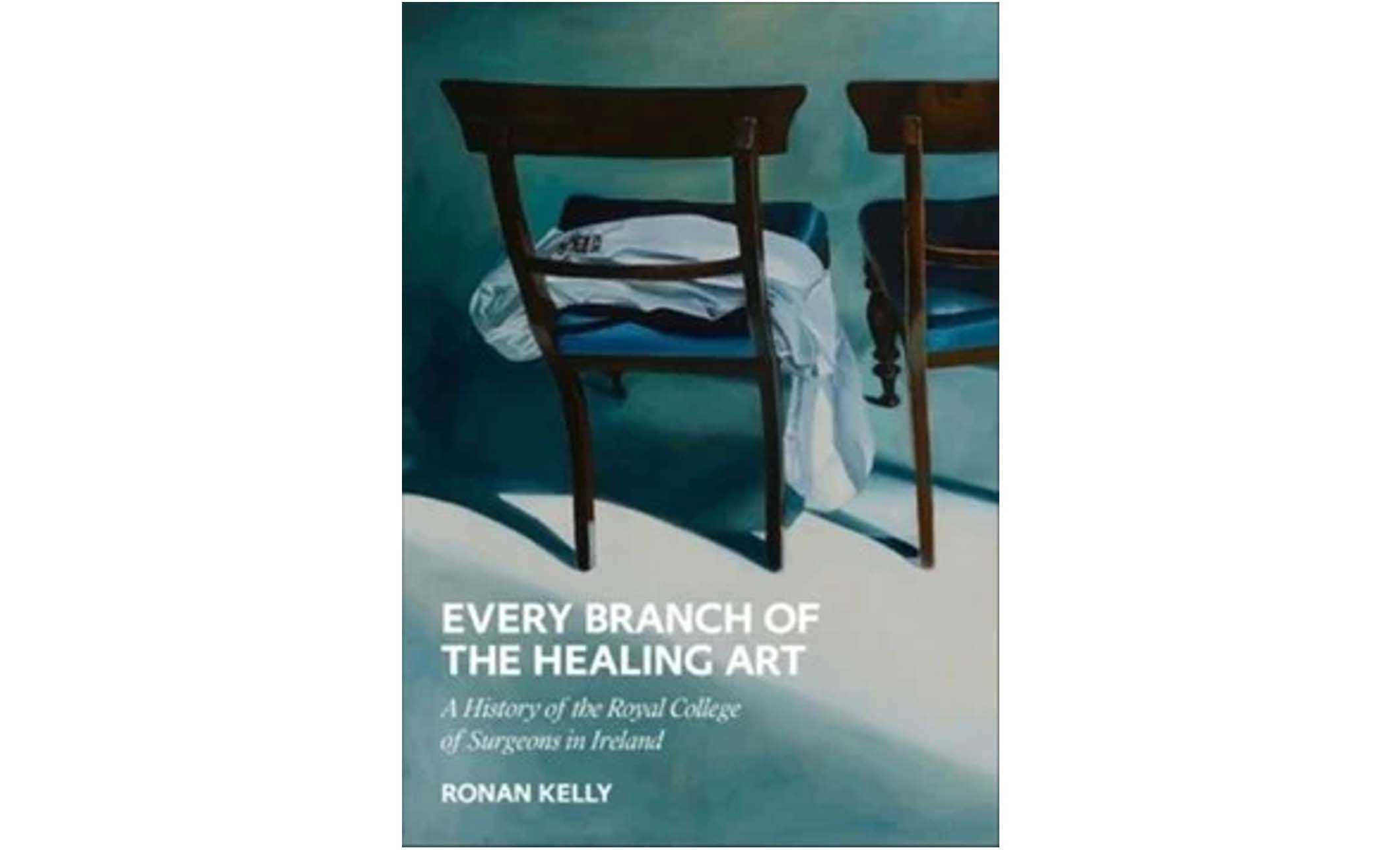Title: ‘Psychopath? Why We Are Charmed by the Anti-Hero’
Author: Dr Stephen McWilliams
Publisher: Mercier Press 2020
Reviewer: Prof Brendan Kelly

In real life, psychopaths commonly leave a trail of terrible destruction in their wake: Emotional chaos, financial ruin and – in the worst cases – the obliteration of innocent lives. In fiction and film, however, the cutting edges of psychopaths’ actions are transformed into surprising narrative turns, thrilling psychological twists and complex stories of manipulation and deceit that fascinate as much as they repel. All too often, we find ourselves siding with the fictional psychopath or, at the very least, longing to see more of their fiendish goings on. Why?
The reasons underpinning this state of affairs lie at the heart of Dr Stephen McWilliams’ wonderful new book, Psychopath? Why we are charmed by the anti-hero. A graduate of the RCSI, McWilliams is a consultant psychiatrist at Saint John of God Hospital, associate clinical professor at UCD School of Medicine and Medical Sciences, and medical editor of Hospital Doctor of Ireland. In addition to his medical degree, McWilliams holds a masters degree in medical education (MMEd) and a doctorate in medicine (MD).
Readers of the medical press will be very familiar with McWilliams’ writing. He has authored or co-authored over 250 articles, contributed to three books and written four books himself, including The witchdoctor of Chisale, The China trials, and Fiction and physicians: Medicine through the eyes of writers. The latter is an especially interesting collection of essays, brief biographies and reviews that relate to medicine in the context of literature and looks at doctors writing fiction, ranging from Nostradamus to Oliver Wendell Holmes to Robin Cook.
McWilliams’ encyclopaedic knowledge of literature is evident again in his new book about psychopaths and the vital roles that they play in fiction, film, and television. With grace and assurance, McWilliams takes us through the history of the concept of psychopathy and, especially, the “Psychopathy Checklist” devised by Canadian psychologist Robert D Hare.
This checklist has become the gold standard for diagnosing psychopathy and McWilliams makes excellent use of it throughout his book.
So, what are the key features of psychopathy? These include, but are not limited to: Glibness, grandiosity, pathological lying, manipulation, shallow affect, lack of empathy and remorse, no sense of responsibility, parasitic lifestyle, need for stimulation, promiscuity, and poor behavioural controls. There is often also juvenile delinquency and criminal versatility, among other undesirable and troubling characteristics.
Having armed us with this knowledge, McWilliams then guides us through a bewildering array of fictional psychopaths ranging from Amy Elliott Dunne in Gone Girl to Hannibal Lecter in The Silence of the Lambs, from Tom Ripley in The Talented Mr Ripley to Tony Soprano in the television series The Sopranos, and from James Bond in the Ian Fleming novels to the deplorable Frank Underwood in the television series House of Cards. McWilliams’ cast of characters is both deeply interesting and oddly disturbing – a perfect reflection of the psychopaths that they all seem to be.
Despite the psychopathic traits that all of these characters share, there is still great diversity in the bunch. Some psychopaths are “amazing” while others are “gothic” or “sinister” and some are “secret psychopaths” – a concept to send desperate chills up the sturdiest of spines. And, then, some are just “gangsters”.
Throughout this parade of loveliness and awfulness combined, McWilliams remains consistently focused on why, precisely, these characters can be considered psychopaths and what it is about them that makes them so likeable to readers and viewers.
Towards the end of the book, McWilliams finishes his journey by expressing views about which of his fictional psychopaths are the most psychopathic and which are the most likeable. You will need to buy and read this excellent book to find out the answers to these ultimate questions. But there is also much to treasure along the way, as McWilliams parades his rich and dizzying array of psychopaths from fiction and film, ranging from the socially adjusted, highly skilled professionals who save our lives to the criminal predators who repel us, fascinate us, and occasionally kill us.
One of the many points that this book demonstrates is that psychopaths are, as McWilliams writes, utterly essential in fiction.
As a result, McWilliams’ book is a glorious compendium of raffish, seductive, destructive characters who charm their way into our hearts and then destroy us from the inside out. And we love to read about them, watch them, and experience the vicarious thrill of proximity to fictional danger, destruction and, on occasion, pure evil.
Psychopath? is the perfect book for anyone who has ever been charmed by an anti-hero, rooted for a villain or fallen in love with a character who was just bad news from the get-go. It is also essential reading for anyone who knows, or is, a psychopath. As Dr Maurice Guéret comments on the front cover, it is “the perfect read to go with fava beans and a nice Chianti…”.
Prof Brendan Kelly is Professor of Psychiatry at Trinity College Dublin and author of The Doctor Who Sat For A Year (Gill, 2019)













Leave a Reply
You must be logged in to post a comment.